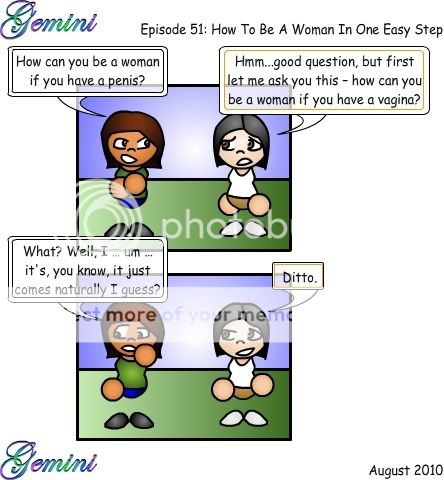I was discussing this with a friend earlier today when I wondered what INFJ Forum might have to say on the subject. What exactly does gender signify? In what manner am I male?
Gender seems to be a label which generalizes people into (usually) a binary system. When more options are tendered, I find that they refer to one's sexuality, which I take to be different from gender.
Society: Divides people into categories. One can determine one's gender through society if one identified with the defined gender roles.
Evolutionary Psychology: Divides people into categories. One can determine one's gender through evolutionary psychology if one identifies with the patterns of behavior associated with a particular gender.

Gender seems to be a label which generalizes people into (usually) a binary system. When more options are tendered, I find that they refer to one's sexuality, which I take to be different from gender.
Society: Divides people into categories. One can determine one's gender through society if one identified with the defined gender roles.
Evolutionary Psychology: Divides people into categories. One can determine one's gender through evolutionary psychology if one identifies with the patterns of behavior associated with a particular gender.




